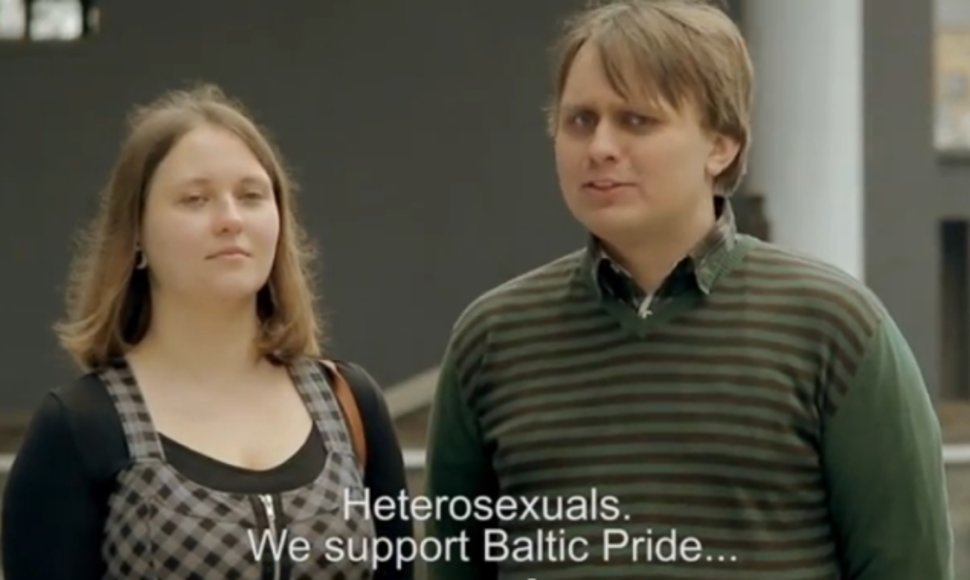Tomas Vytautas Raskevičius, a representative of the LGBT rights organization, tells BNS that the LRT wants the ad to be broadcast with a warning that the content is not suitable for minors and air it only after 11 PM.
The national broadcaster also wants to label another video on "tolerance and the diversity of ideas" with the sign N-14, used to indicate contents for those older than 14, and to broadcast it only after 9 PM.
According to Raskevičius, the LRT administration based its decision on the Law on the Protection of Minors Against the Detrimental Effect of Public Information, providing for the restriction of information "which expresses contempt for family values, encourages the concept of entry into a marriage and creation of a family other than stipulated in the Constitution of the Republic of Lithuania and the Civil Code of the Republic of Lithuania."
"We have appealed against this clarification to the Inspector of Journalists' Ethics. We believe that such a decision is not substantiated. Our videos do not promote any creation of family relations and only talks about an event, tolerance and diversity of ideas and show that there are people with alternative sexual orientations and sexual identities in Lithuania," the LGL representative said.
"It's a clear proof that laws banning the 'propaganda of homosexuality' are effectively in place in Lithuania and we can clearly draw a parallel with what is going on in Russia and Ukraine," he said.
Rimvydas Paleckis, deputy director general of the LRT, confirmed it to BNS that he had signed a letter to the LGL, explaining why the particular timing after 9 and 11 PM was chosen, but refused to explain the arguments. He says he has not received a response from the LGL yet.
"This is the letter we sent and I have not received an answer to that letter yet," he said.
"We, first of all, avoid violations of any laws, including the Law on the Protection of Minors and the Law on Advertising, etc. This is the context we are negotiating in. We have made several proposals to them as to how, according to our Advertising Division, advertising should be without legal violations, and now we are waiting for their position and common agreement," Paleckis said.
Signed by Paleckis, the letter to the LGL states that the videos are labelled with warning signs and broadcast in late hours pursuant to the Law on the Protection of Minors Against the Detrimental Effect of Public Information.
"The videos provided by the LGL to the LRT promote same-sex relations. The videos potentially encourage the concept of entry into a marriage and creation of a family other than stipulated in the Constitution of the Republic of Lithuania and the Civil Code of the Republic of Lithuania," the letter states.
Acting Inspector of Journalists' Ethics Deividas Velkas has confirmed that a complaint by the LGL has been received. He doubts, however, that the service will manage to process the complaint until the Baltic Pride as experts' opinion might be needed. Pursuant to the law, the service might process a complaint within three months.
"In this case, we still need to check those videos they refused to broadcast at a time the contractor had wanted. We will also need experts' evaluation as to whether there's a basis for restrictions pursuant to the Law on the Protection of Minors Against the Detrimental Effect of Public Information or not. (...) We cannot hasten the complaint processing and adopt a biased decision just because some events are planned or had been planned," Velkas told BNS.
The Inspector of Journalists' Ethics supervises the implementation of the Law on the Protection of Minors Against the Detrimental Effect of Public Information.
Produced with financial help from France, the video show Lithuanians stating that they are of different sexual orientations and support the Baltic Pride, which is planned in late July and is still a subject of legal disputes.














